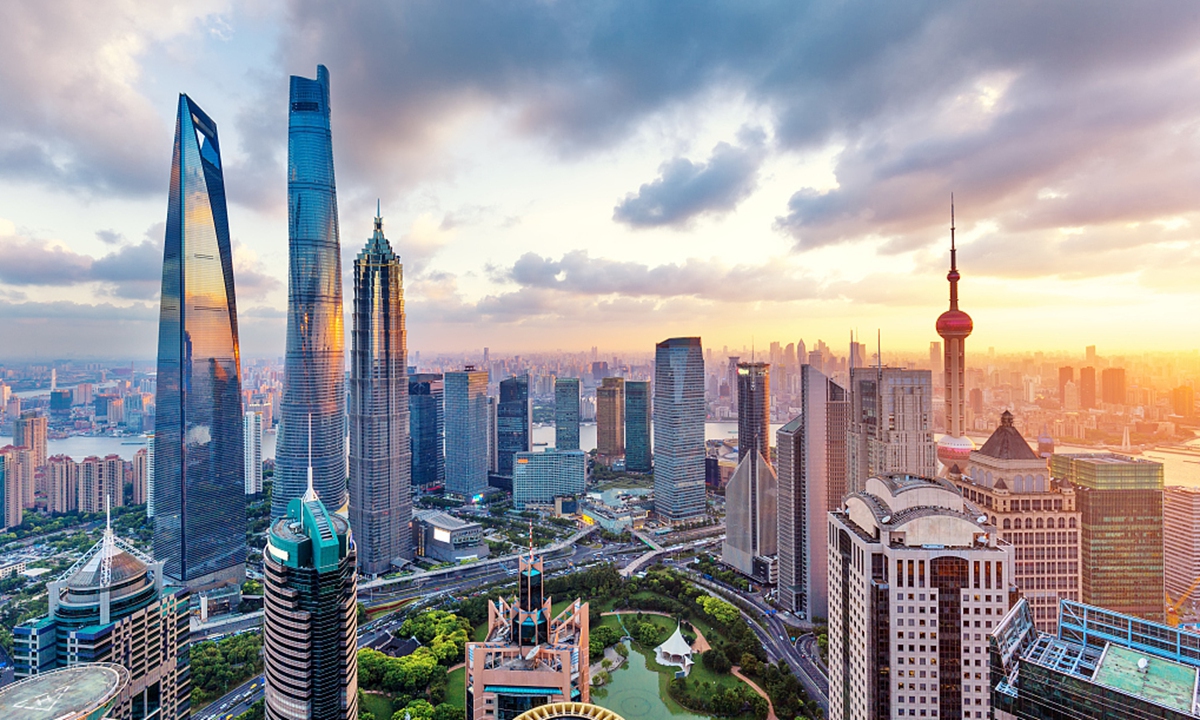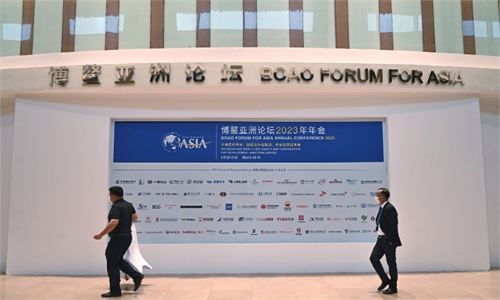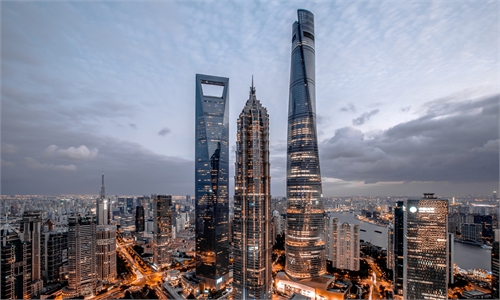GT Voice: China is best safe haven; global investors shouldn't miss out because of politics

Photo:VCG
For months, China's swift economy recovery has been making headlines around the world, often portrayed as the only "bright spot" across a slowing global economy. But what does such a recovery look like? What does it mean for global investors? There was no clear, full picture, and there were some doubts, especially in foreign media.
But, a growing number of recent signs suggest that the pace of the recovery in the world's second-largest economy is faster than many have expected. In March, the purchasing managers' index (PMI), a gauge of factory activity, beat some economists' forecasts and reached 51.9, well within expansion territory. What's more, the PMI reading for the non-manufacturing sector jumped to 58.2.
And things may be just getting started. Following the two sessions, where China set an annual GDP growth target of about 5 percent this year, Chinese officials at all levels have moved swiftly to further speed up the economic recovery, with a series of policy measures. On Friday, Zhu Zhongming, a vice minister of finance, said China will step up fiscal support for the economy, including tax and fee reductions for businesses. The extended and optimized tax and fee cuts are expected to reduce more than 480 billion yuan ($69.9 billion) in costs for market players.
What's more, various central government departments and local governments have also launched what appears to be a nationwide campaign to improvement business climate for businesses. Just over the past several days, provincial governments from Northeast China's Liaoning Province to South China's Hainan Province held special meetings for the effort.
All of this points to an optimistic picture for China's economic recovery. Amid the growing signs of rapid recovery, the World Bank, in a report on Friday, raised its forecast for China's growth by 0.6 percentage point to 5.1 percent in 2023. Some context will help better grasp the scale of China's recovery this year. For the Asia Pacific, growth excluding that of China will slow to 4.9 percent this year, down 0.9 percentage point from 2022. For the world economy, growth will average 2.2 percent throughout the rest of the decade, according to the World Bank. So, from every aspect, China's growth will be the bright spot for the world economy - and an ideal market for global businesses seeking growth.
And that's not all. While China is on a stable trajectory toward recovery, advanced economies like the US and the eurozone are facing both significant slowdowns and the risk of financial and banking crises. The collapse of Silicon Valley Bank and some other banks in the US and the failure of Credit Suisse in Switzerland exposed the profound risks in the Western banking system. While Western officials have repeatedly claimed that a broader crisis is not imminent, investors are understandably jittery and in desperate need for viable options to cushion the risks in advanced economies. And where they could find such options? One word: China.
There is no shortage of fearmongering headlines pushed by the Western media reports about China's economy. Their assertion is often based on hearsay or outright lies. They claimed that China is increasingly "hostile" to foreign businesses and many foreign businesses are abandoning the Chinese market. But they ignored the steadily increases in foreign investment into China, even during the toughest period of the epidemic. In 2022, foreign direct investment into China grew 6.3 percent to 1.23 trillion yuan. That doesn't exactly look like a "mass business exodus" from China, does it?
Also, there are the ever growing calls for "decoupling" or "reducing reliance" from US and other Western officials, asserting that it is unsafe for foreign businesses to invest in China. But for any fair-minded person, it should be crystal clear which country is making it unsafe for cross-border investments. In a desperate attempt to preserve its shrinking global dominance, the US is picking fights, economic or otherwise, around the world. It is adopting protectionist policies at home to bolster its domestic industries. Externally, it is imposing unilateral sanctions on any country it deems to be unfriendly. Worse yet, it is now exporting risks of financial and banking crises to the world.
Many multinationals are fully aware of what is actually happening on the ground. And if there was any doubt about China's continuously expanding market access and improving business climate for global businesses, face-to-face meetings with Chinese officials at two major forums - China Development Forum and the Boao Forum for Asia - should offer sufficient reassurance. For businesses around the world that seek win-win cooperation, don't miss out on China just because of geopolitical ramblings in the US.



